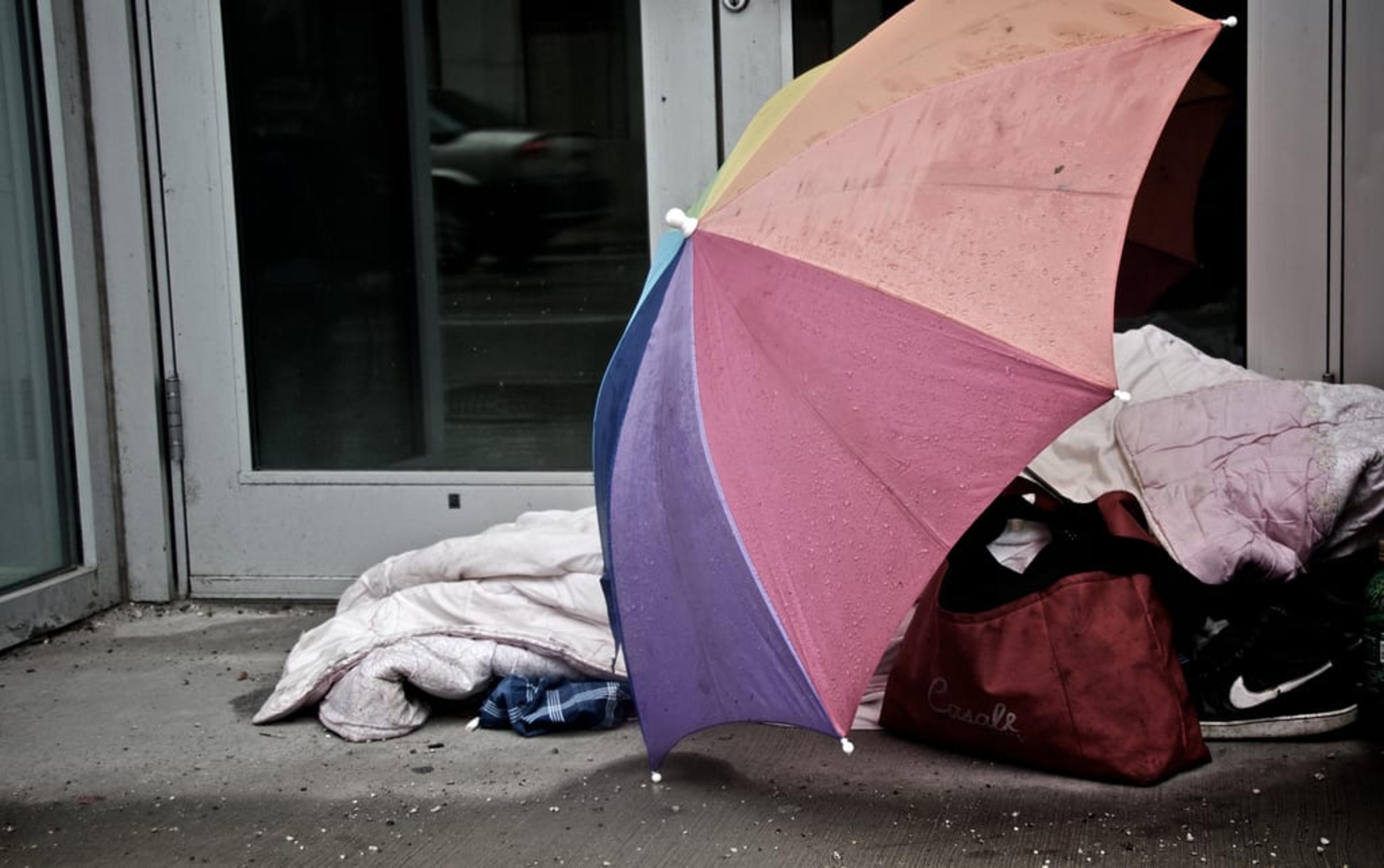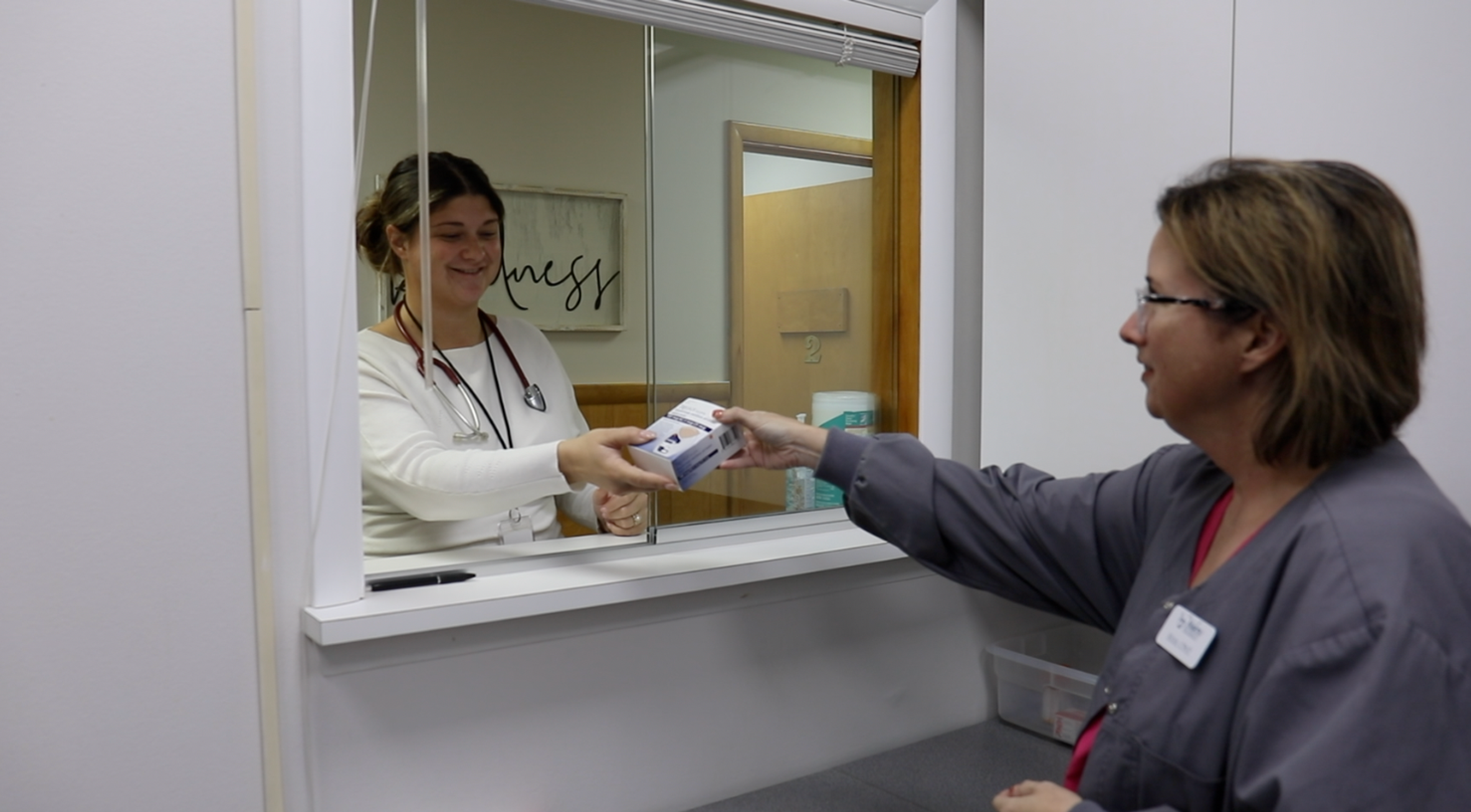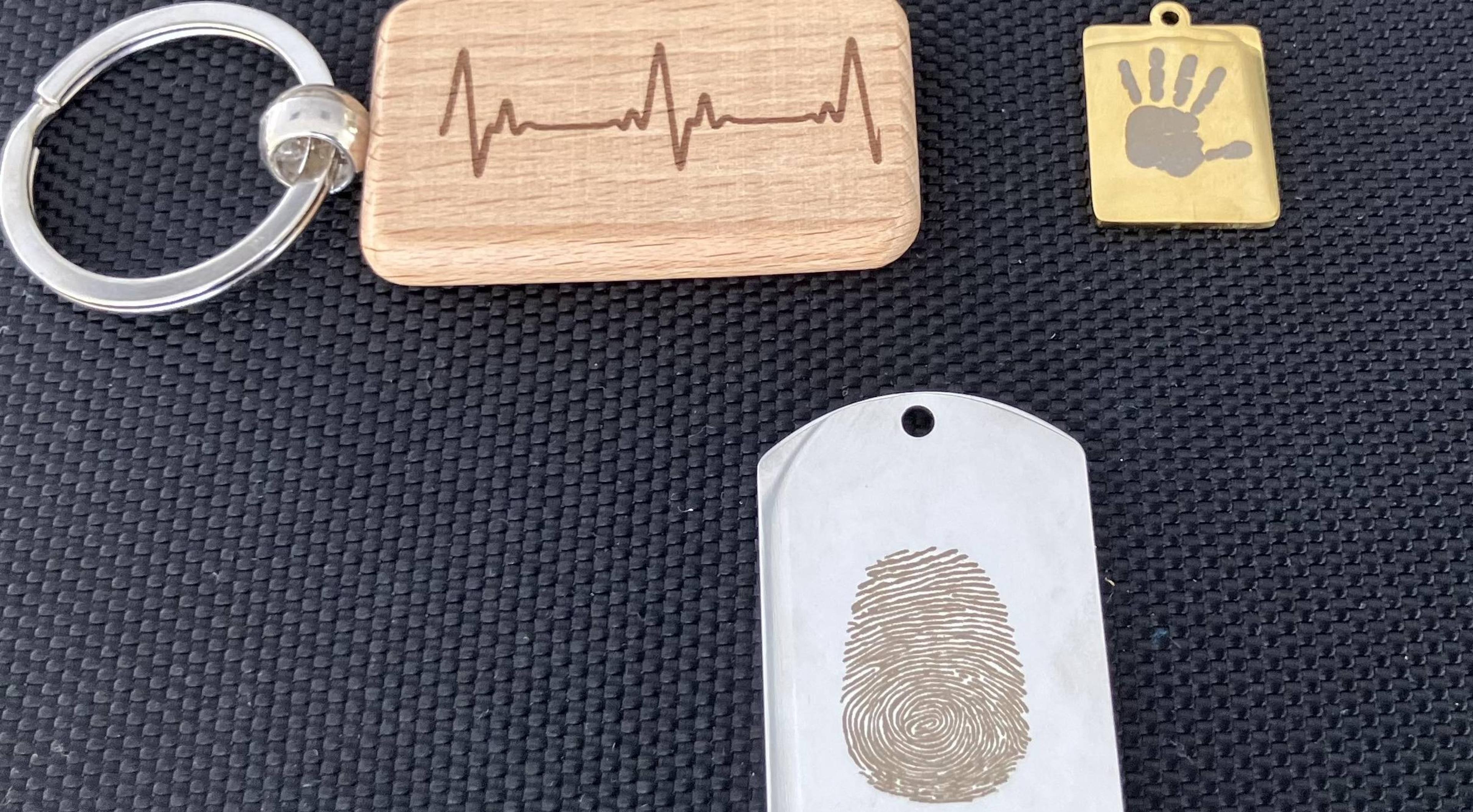Homeless to Healthy
Julie Bitely
| 6 min read

When Morgan* was five months pregnant, her baby’s father left. She was in a living situation that was no longer affordable and with no family close by, she was feeling desperate and scared. “It was daily constant panic and anxiety,” she said. “It was like the worst possible feeling you had in the world. I felt very alone.” Enter Avalon Housing, a provider of permanent supportive housing for people who are homeless or have a mental or physical disability in the Ann Arbor area. Morgan was able to move into a spacious two-bedroom apartment two months before giving birth to her now three-year-old daughter and the family has enjoyed a stable, affordable home ever since. Morgan’s Avalon caseworker helped her find a scholarship for daycare and even helped the young mom with diapers. Morgan now has a full-time job and dreams to find a different place so that her apartment can be used by someone else who could use the same type of opportunity. She credits Avalon with turning her life around. “Really anything you need to survive, they provide,” she explained. “I owe them a lot.”
Identifying Homeless Users of Emergency Care
Although Morgan never experienced homelessness, many of Avalon’s tenants have. This population faces major obstacles when it comes to managing their health, especially chronic conditions. Homelessness exacerbates chronic illnesses by increasing exposure to trauma and high-risk behaviors. It also limits access to coordinated primary and behavioral health services. About two years ago, the Blue Cross Blue Shield of Michigan Foundation awarded a $50,000 grant to support the work of the Corporation for Supportive Housing (CSH) and Avalon Housing. In 2011, CSH received a $2.3 million, two-year grant from the newly established Social Innovation Fund (SIF), launched by the White House and administered through the Corporation for National and Community Service. The goal was to identify homeless individuals in Washtenaw County who were disproportionate users of the county’s emergency health services and place them in housing. An intensive case management team of psychiatrists, medical doctors, medical case managers, substance abuse providers, homeless outreach workers, and shelter staff was put in place to ensure that newly housed individuals had what they needed to improve their health outcomes and reduce inappropriate use of emergency rooms and hospitalizations. Aubrey Patiño is the Director of Clinical Services at Avalon Housing. She said it really does take a village of professionals to help homeless individuals get back on their feet, especially when it comes to managing their health. Traditional systems of care aren’t necessarily designed with homeless users in mind. She said the work being done at Avalon through CSH helps coordinate different care services in order to help a newly housed person navigate a sometimes complicated system.
A Stable Home Makes Following Doctor’s Orders Easier
Staying healthy requires routine, said Meghan Takashima, Senior Program Manager at CSH. If you have a chronic condition such as diabetes, you’d need to be able to keep your insulin in a refrigerator and take it at the same time every day. Obviously, if you’re living at a shelter or on the streets, that’s next to impossible. “Everything that allows for routine is disrupted when you’re homeless,” Takashima said. When your routine doesn’t allow you to take care of yourself, you’re much more likely to seek crisis medical attention. Placing homeless people in housing can significantly reduce healthcare costs since people are less likely to rely on the emergency room. “That ability to have a place to land makes a big difference,” Takashima said.
Homes First, Health Second
Takashima said in Washtenaw County, case workers focus on establishing a stable residence for their charges before addressing underlying health issues, which often include mental illness and substance abuse. Oftentimes, just having a place to call home is a major adjustment. “Making that transition can be really hard,” she said. “There’s a lot of behavior that needs to be relearned.” “It’s not uncommon for people to go into a state of immediate psychiatric crisis,” said Laurie Ingram, Director of Compliance and Evaluation at Avalon Housing. New residents at Avalon are seen a minimum of three times per week for their first 90 days to make sure their adjustment is going smoothly. Many are seen every day. Case workers help with everything from making sure the fridge is stocked to helping residents apply for entitlement programs to help them get back on their feet. Once basic needs are met, case workers can begin to focus on helping residents get out from under drug and/or alcohol addiction and introduce the concept of seeing a primary care provider for their health concerns. “Somebody who’s been on the streets for decades … might not be super interested in getting a primary care provider their first month in housing,” Patiño said. “This population is an extremely challenging one just because of the complexity of their needs,” Takashima said.
Changing Lives through Housing
Ingram said there’s a growing body of research that shows stable housing is one of the primary factors that can improve health. She said the average age of Avalon clients is 50 and most have experienced over nine years of homelessness. One year prior to having stable housing, residents averaged 9.6 emergency room visits and 4.6 inpatient stays. One year post-intervention, ER visits had dropped to 4.8 and inpatient stays had decreased to 1.25. She also pointed to second-year residents who had ceased using drugs and alcohol and who had improved personal relationships with their neighbors and families. “We’re seeing some tremendous returns,” she explained. Patiño said the biggest change she sees in residents is a restoration of their dignity. “Watching people enter housing and then watching that progression over now a period of years, they physically look different,” she said. “There’s a transformation that takes place.” Takashima said over the life of the program, over 100 people have found housing, with an 85 percent retention rate. Ingram said it might not seem like a lot, but for those people who’ve experienced tremendous life transformations, it’s huge. “At the end of the day, that’s the most important thing,” she said. The Blue Cross Blue Shield of Michigan Foundation is committed to improving quality of care and lowering costs through a multi-faceted approach. The Foundation has funded many initiatives looking at ways to reduce dependency on emergency care services among high-risk populations. We believe this is an important way to not only reduce costs, but to ensure that the care received makes a meaningful impact on vulnerable, at-risk patients. *Morgan asked that we not use her last name and we are honoring her request. If you enjoyed this post, you might also like:
Photo credit: Colin Davis





